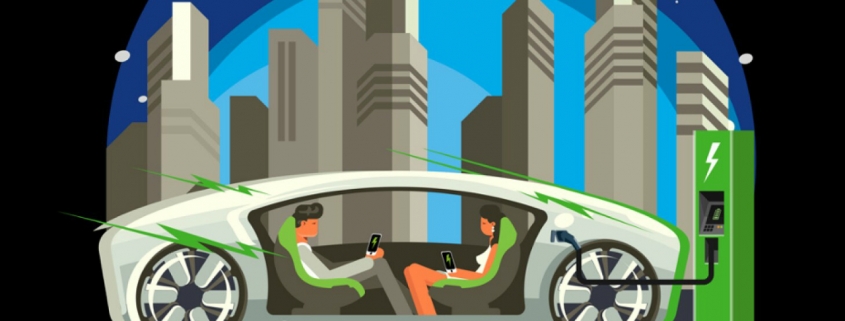Despite affordability concerns, new report reveals Canadian Millennials are bolstering car ownership dreams amid COVID-19
Millennials – those tech-savvy, social activist, eco-friendly young adults who grew up with the Internet – are increasingly turning to a lifestyle they previously eschewed for being wasteful and conformist: car ownership.
With the COVID-19 pandemic proving to be a dangerous and enduring disruptor, Millennials are shunning ride-share services like Uber and avoiding the bus without apology.
You could say they’re sorry, not sorry.
“Millennials are getting pushed into thinking about alternatives to ride-hailing and public transit,” says Ryan Robinson, research leader at Deloitte Canada’s Consumer Industry Centre. “Now that those modes are under pressure due to the pandemic, younger consumers are shifting to personal transportation.”
They’re contemplating car ownership sooner than originally planned, with 56 per cent of Millennials expressing interest in owning a vehicle to help them stay healthy and safe. It’s one of the surprisingly outcomes of a survey of Ontario consumers Deloitte Canada conducted for the Trillium Automobile Dealers Association (TADA) in an unusual year racked by a health crisis.
Before 2020, many Millennials had been putting off driving, viewing it more of a stigma than a rite of passage. Their reasons were many: fossil fuels contribute to global warming; car ownership is fraught with expenses like insurance, maintenance and parking; traffic is exasperating and only getting worse, and a licence is no longer viewed as a badge of honour.
Money remains a major impediment to car ownership for Millennials. With many younger people working precariously in temporary employment without benefits or job security, taking on a car loan or lease requires a major leap of faith.
“Affordability is definitely an issue for them,” says Robinson, “especially when government programs such as CERB are being curtailed.” Still, even for Millennials working from home, an automobile becomes a useful appliance for those who relocated from a downtown condo to a house outside of the city.
Dealers welcoming the prospect of selling cars to this unexpected segment of buyers ought to be aware Millennials tend to be averse to taking on more debt, since many have student loans to pay off. And according to a 2019 Merrill Lynch survey, seven out of 10 adults between the ages of 18 and 34 quietly rely on the Bank of Mom and Dad for financial support.
“Younger people tend to shop the used-vehicle market out of concern for their finances,” Robinson points out. By buying used, they can afford models equipped with more of the high-tech features they crave. It’s just as well, since some automakers have stopped making economy cars, the traditional first step for a new driver.
“Manufacturers recognized that entry-level models are unprofitable at a time when eight out of 10 new vehicles sold are trucks and SUVs,” says Robinson. Inexpensive cars such as the Ford Focus and Chevrolet Sonic languished on lots, while anything with an AWD badge flew out of showrooms.
While the Detroit Three manufacturers have euthanized their small cars, automakers like Hyundai and Toyota have figured out how to make them profitably, and sell hundreds of thousands of them every year.
For those buying used, the COVID-19 pandemic presented new challenges in the marketplace. The shutdown last April closed assembly plants and disrupted the supply chain, which meant consumers who needed a new car or truck couldn’t always get one. That put more pressure on the used-vehicle market, raising demand and prices.
Robinson points to a secondary issue that impacted the cost of used cars this year: the absence of ex-rental vehicles.
“The car-rental business almost ground to zero due to the collapse of the travel industry, the effect of which rippled across the used-car market,” he explains. When firms such as Hertz did not replace their idle rental fleet with new models, fewer low-mileage cars and trucks trickled into the used market, exacerbating the vehicle shortage.
All of this conspired to make used models more expensive this year, which required buyers to dig deeper to get the vehicle they wanted. Some young consumers had been kicking the tires of a hybrid or fully electric vehicle – an aspirational purchase.
“Millennials are more open to advanced technology, and the percentage of consumers moving away from the internal combustion engine has been growing – until this year,” notes Robinson. “The cost of electric and hybrid models is a big issue, especially for Millennials. Tried-and-true reliable technology is all they really want.”
Given the question marks around electric vehicle charging networks, Ontarians appear more comfortable to come halfway and acquire a gas-electric hybrid model that presents no range anxiety issues, rather than a fully electric vehicle.
Other trends revealed themselves as COVID-19 roiled the marketplace.
“We anticipate the work-from-home trend will become permanent,” Robinson says, with 41 per cent of Deloitte survey respondents planning to work from home at least several days a week. Less commuting impacts how often a vehicle requires service, and lengthens the time before a car or truck needs to be replaced outright.
With 43 per cent of respondents anticipating driving less this year, about half of Ontarians – not just Millennials – expect to acquire a less expensive vehicle than originally budgeted for, given the shaky economy caused by spasmodic COVID-19 lockdowns.
Deloitte’s 2020 Ontario automotive consumer study uncovers changing driver behaviours rooted in workplace and residency shifts driven by ongoing pandemic safety concerns. Significantly, it paints a portrait of an emerging segment of car buyers with affordability concerns that may well serve as an early warning system for the entire automobile industry.
The post Despite affordability concerns, new report reveals Canadian Millennials are bolstering car ownership dreams amid COVID-19 appeared first on WHEELS.ca.



